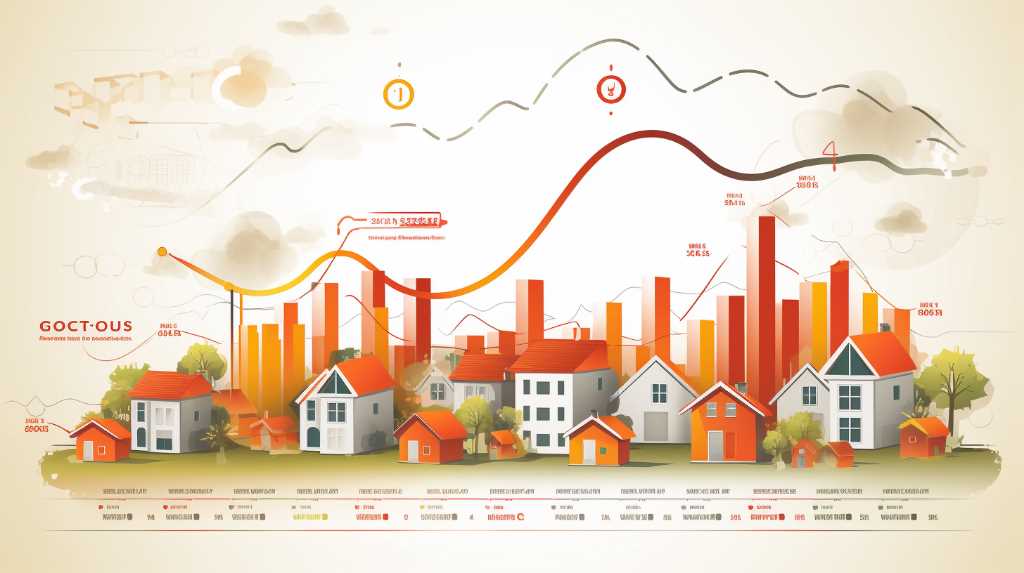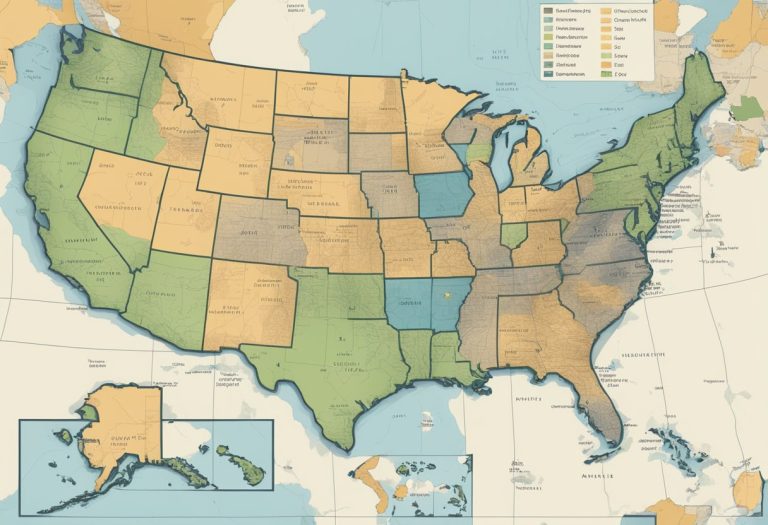Real Estate Market Research Tools: Unveiling Top 5 Picks for Smart Investing
Real Estate Market Research Tools: Unveiling Top 5 Picks for Smart Investing
In the dynamic sphere of real estate, being well-equipped with the right tools for market research can make a significant difference. Whether you’re a seasoned investor or starting in the industry, understanding market trends, property values, and investment potential is crucial for making informed decisions.
Real estate market research tools range from comprehensive analytics platforms to specialized software that provides insights into demographics, economic data, and competitive landscapes.
With the rise of big data and advanced analytics, you now have the opportunity to scrutinize vast amounts of information more effectively.
Tools such as real estate market analysis software allow for a deeper understanding of property values and investment opportunities. Additionally, platforms like Mashvisor cater to those requiring competitive market analysis, offering features that streamline the process of comparing and contrasting potential investments.
The availability of diverse tools means that, regardless of your specific needs and strategies, you have access to resources that can enhance your research and decision-making processes.

Key Takeaways
- Access to a variety of real estate market research tools is essential for making informed investment decisions.
- Advanced analytics and visualization tools provide deeper insights into property values and market trends.
- Customized tools are available for competitive analysis, investment management, and accessing public records.
Overview of Real Estate Market Research Tools
When you’re in the realm of real estate, understanding the market is vital. Market research tools can be a game-changer for developing insight and making informed decisions. To start, you have a variety of online tools at your disposal.
- NAR Research and Statistics: This is a hub for detailed reports and insights provided by the National Association of Realtors.
- Mashvisor: A tool that aids investors in analyzing neighborhoods and properties for potential investments.
- NeighborhoodScout: Useful for obtaining detailed data on crime rates, school quality, and real estate trends in specific areas.
- BiggerPockets: Offers forums, articles, and an array of tools for real estate education and networking.
- City-Data: Provides comprehensive statistics on all sorts of data points from demographics to economics for US cities.
Tools like these typically offer a range of functionalities that include comparative market analysis (CMA), financial modeling, and risk assessments, which could be essential for your investment strategies. It’s important to note that while some tools may be free, more advanced features often come with a subscription fee.
By using these tools, you can access a wealth of real estate information that can help forecast potential ROI, assess cash flow projections, and even consider cap rate trends. Diving into real estate market research with the right tools can put you ahead in the real estate game, ensuring that your decisions are based on comprehensive and up-to-date market data.
Data Analytics and Visualization Tools
In today’s real estate industry, leveraging data analytics and visualization tools is essential for insightful decision-making. You’ll discover how Geographic Information System (GIS) software and statistical analysis platforms can transform complex data into actionable insights.

GIS Software
GIS software allows you to interpret real estate data spatially and visually. Tools like TopHap provide comprehensive geospatial data visualization, giving you a clear view of residential and commercial market landscapes. With these platforms, you can pinpoint trends and make data-driven decisions by observing demographic and topographical nuances on interactive maps.
Statistical Analysis Platforms
Statistical analysis platforms process vast amounts of real estate data to reveal hidden patterns and investment opportunities. The intuitive interfaces of modern analytics tools shed light on market behavior with user-friendly dashboards and real-time data analytics. By using these platforms, you’re able to analyze market trends, assess property performance, and forecast future property values with precision.
Real Estate Database Platforms
In today’s real estate landscape, having access to reliable and comprehensive databases is crucial for making informed decisions. These platforms offer a wealth of property-specific information and extensive market analysis tools.
Property Information Aggregates
When you’re looking for detailed property data, Property Information Aggregate tools are indispensable. With sites like NeighborhoodScout, you gain access to in-depth insights on real estate properties across the country, including home values, demographics, and school ratings. These platforms aggregate data from various sources, ensuring that you have a full picture of the property landscape.
- Usefulness: Centralized property records
- Types of Data: Home values, crime rates, neighborhood demographics
Market Trends Analysis
Understanding market dynamics is essential for predicting future property values. Market Trends Analysis platforms like Virtuance help you track changes in real estate prices, community development, and economic indicators that influence the market. By leveraging these tools, you can spot trends as they emerge and make data-driven predictions about where the market is headed.
- Key Metrics: Price changes, sales velocity, inventory levels
- Benefits: Strategic investment decisions, identifying market cycles
Survey and Feedback Collection Tools
Understanding your clients’ needs and experiences is crucial in real estate. Utilizing the right survey and feedback collection tools can significantly enhance your market research efforts, providing actionable insights to improve your services.
Customer Feedback Software
You can streamline the process of gathering customer feedback with specialized software designed for real estate companies. Tools like Best Cost Saving Survey Software Tools for Real Estate Companies help boost productivity by reducing costs and potentially increasing profits. Look for features like:
- Pre-designed templates: These can save you time when creating surveys.
- Real-time analytics: Enable you to analyze feedback promptly for immediate actions.
Online Survey Platforms
To reach a wide audience quickly, online survey platforms are invaluable. With tools mentioned in 12 Great Online Survey Tools for Real Estate Agents – Placester, you can:
- Create custom feedback surveys using 50+ expert templates.
- Incorporate 100+ question types to dive deep into specific areas of interest.
- Employ advanced survey logic and question branching to ensure relevance to respondents.
Competitive Analysis Tools

If you’re delving into the real estate market, having the right competitive analysis tools can make all the difference. Here’s a straightforward look at some tools that should definitely be on your radar.
- Mashvisor: This is a dynamic tool that simplifies finding lucrative investment properties. It provides a Property Finder, heatmap analytics, and more, to give you a thorough competitive market analysis.
- DealCheck: Known for its user-friendly interface, DealCheck helps to evaluate rental properties, flips, and apartments quickly, offering crucial insights into potential investments.
For comparative market analysis, specific tools offer a range of functionalities:
- ARV Calculator: You can use the New Silver’s ARV Calculator to get an estimate of the After Repair Value of properties, an essential figure in calculating potential ROI.
- MLS: Short for Multiple Listing Service, the MLS is a comprehensive database of properties that real estate professionals use to find comparative data.
Additionally, tools like NeighborhoodScout provide detailed neighborhood profiles which can be incredibly helpful in comparing similar properties in different areas.
Remember, great tools offer actionable insights, so choose the ones that best suit your needs and will help you make informed decisions in this competitive arena.
Investment and Portfolio Management
Real estate investment and portfolio management tools are invaluable for maximizing returns and managing risks. They help you analyze and adjust your investments efficiently.
ROI Calculators
ROI (Return on Investment) calculators are critical in evaluating the profitability of your real estate investments. By inputting purchase price, renovation costs, and expected rental income, you can quickly determine potential returns.
For example, tools like Stessa enable you to track your investments’ performance over time, ensuring your financial decisions are data-driven.
Investment Analysis Software
Investment analysis software provides a deeper dive into the viability of property investments. These tools, such as PropStream, often include features like comparative market analysis, rent estimators, and portfolio assessments, equipping you with detailed insights to make informed investment choices.
With accurate analytics at your disposal, you can confidently manage your property investments for optimal growth.
Demographic and Economic Data Sources
When conducting real estate market research, demographic and economic data play a critical role in understanding market trends and potential growth areas. Here’s a glimpse of the tools at your disposal:

- U.S. Census Bureau: Your primary source for demographic information. The Census provides insights into population trends, including age distributions, race, education, and household compositions. It’s ideal for gauging potential demand in real estate.
- American Community Survey (ACS): A yearly survey that offers detailed demographic data. Use the ACS to get updated information on social and economic factors which can influence the real estate market.
- Bureau of Labor Statistics (BLS): For economic data, the BLS is invaluable. You can find employment statistics, which are great indicators of the economic health of an area.
- Federal Reserve Economic Data (FRED): Access a vast database of economic information that can support your analysis of property values and investment risks.
In addition to these public sources, there are special tools designed to streamline your research:
- Altos Research: It supplies you with real-time real estate data, offering weekly statistics and market analysis for a comprehensive scope of zip codes.
To effectively utilize these sources, consider the following tips:
- Always cross-reference data to ensure accuracy.
- Keep an eye on historical trends to predict future changes.
- Acknowledge regional differences; what’s true for one area may not apply to another.
For a deep dive into economic and demographic trends affecting real estate, tools like HelloData.ai aggregate data from surveys and reports to give a rounded view of market conditions.
Public Records and Legal Resource Tools
When you’re venturing into real estate, understanding how to utilize public records and legal research tools is essential. These resources can give you invaluable insights into property history, ownership, zoning laws, and more.

Accessing Public Records
Public records are a goldmine for real estate researchers. They provide detailed information about properties, including:
- Ownership history
- Property tax records
- Land use and zoning regulations
- Environmental constraints
To access these records efficiently, online databases such as Nexis for Real Estate streamline the process. They allow you to swiftly sift through a vast collection of records.
Legal Research Databases
Legal research tools are equally critical. They offer a deeper dive into legal precedents, statutes, and important case law that can affect real estate transactions. Some prime examples include:
- Clio: Offers free online legal research databases.
- Thomson Reuters PeopleMap: A comprehensive public records search tool that combines legal research with due diligence.
Software Solutions
To further streamline your research, consider legal research software. Platforms like those reviewed by Lawyerist offer comparisons and feature descriptions to help you select the best tool for your firm.
Remember, the right tools can transform your research, ensuring you have the most accurate and relevant information for your real estate endeavors.
How To
How to Track Real Estate Market Trends Online
Staying informed about market trends is essential in real estate. Start by identifying reputable online platforms that feature real-time data and analytics.
Websites like Realtor.com and Redfin provide up-to-date information on market conditions, including inventory levels and median prices. Subscribe to receive market reports and alerts for specific areas.
Use this information to create graphs and charts to visualize trends over time. Regularly tracking these changes helps anticipate market shifts, ensuring you remain a step ahead in your real estate ventures.
Frequently Asked Questions
Exploring frequently asked questions can provide you with insights that address your specific needs and uncertainties in real estate market research.

What tools are available for conducting thorough market research in real estate?
For thorough market research in real estate, you can use a variety of tools such as MLS databases, heat mapping software, and property valuation models. These tools help in analyzing market trends and valuing properties accurately.
Which platforms offer the best analytics for real estate market trends?
Platforms that offer in-depth market analytics include real estate software like Mashvisor and Zillow, which provide valuable insights into real estate market trends, such as average rent, occupancy rates, and sales history.
How can one perform a comprehensive deal analysis within the real estate sector?
You can perform a comprehensive deal analysis by using competitive market analysis software and ROI calculators to evaluate property value, returns, and risk. Tools found on real estate investment websites can assist in this detailed financial scrutiny.
Can you suggest any free resources for real estate market analysis?
Yes, free resources for market analysis include online platforms such as Realtor.com and Redfin, which provide free access to housing market data, trends, and demographic information.
Where can I find the most reliable real estate data and statistics?
Reliable real estate data can be found on government websites, such as the U.S. Census Bureau, as well as on specialized real estate analytics platforms that include historical and current market data.
What are some effective strategies for gathering market intelligence in real estate?
For gathering market intelligence, you should network with local agents, attend real estate investment meetups, and utilize real estate market research guides to learn about effective strategies and specific market indicators.
How can I assess local real estate demand using market research tools?
Local real estate demand can be gauged through a blend of quantitative and qualitative analysis. Start with demographic and economic data from governmental sources to understand the population growth and employment landscape of an area.
Use MLS databases to track inventory levels, days on market, and changes in sale prices. Look at rental market statistics to assess investment potential and demand trends. Interviewing local real estate agents and attending community meetings can also provide valuable insights into the vibrancy of the local real estate market.
What are some effective tools for conducting real estate market research?
To perform comprehensive real estate market research, professionals often rely on a variety of instruments. Key tools include Multiple Listing Service (MLS) databases, which provide detailed listings and transaction data for properties.
Real estate analytics platforms, such as CoStar or Zillow Research, offer in-depth market insights and trends. For demographic and economic data, the U.S. Census Bureau and Bureau of Labor Statistics are invaluable resources.
Additionally, Geographic Information System (GIS) applications enable spatial analysis of market trends and patterns, which can be critical for making informed real estate decisions.
Statistics
- Tools utilizing GIS technology allow for 80% faster analysis of geographical data within the real estate sector.
- Investment in real estate tech startups reached a record high of $9.7 billion globally in 2021, indicating a significant shift towards technology-driven market research.
External Links
- CoStar offers comprehensive analytics and detailed information for commercial real estate market research. Visit CoStar
- Tableau’s powerful visualization tools assist with the interpretation and presentation of real estate market data. Visit Tableau






